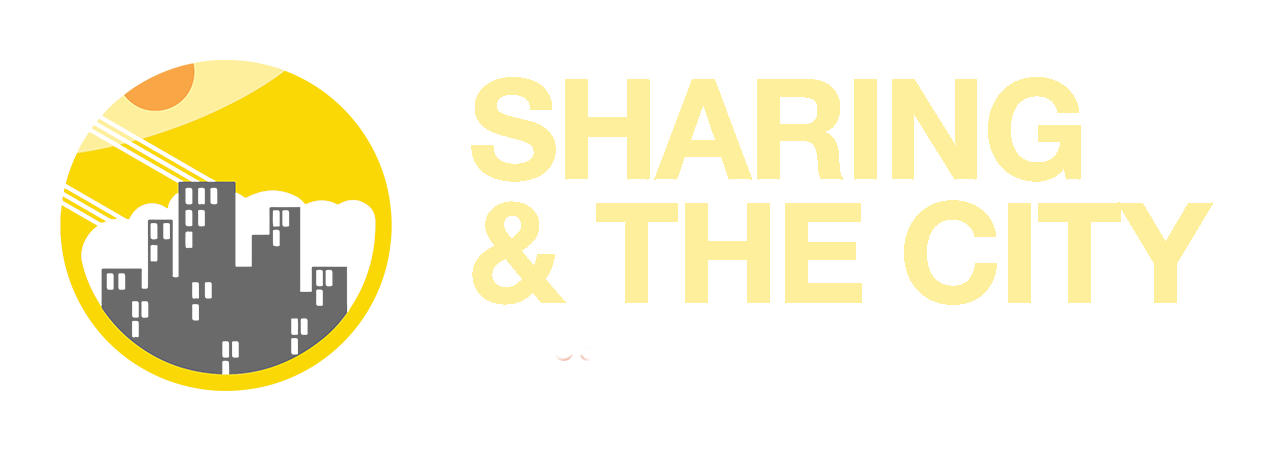Roundtable on "SHARING CITIES: SHAPING TOMORROW"
On 16 November, 2020, Sharing Cities Sweden and Sharing Cities Alliance organised a roundtable on “SHARING CITIES: SHAPING TOMORROW”. Sharing and the City researcher Yuliya Voytenko Palgan commented on the future of sharing in cities and communities.
About the roundtable
The roundtable focused on the topic ‘From challenges to chances for change’. The purpose of this roundtable was to share insights and ideas on the future of sharing in our cities and communities. In this time of pandemics and crises (including the impacts of the corona virus and how we emerge from this pandemic as well as the global climate and biodiversity crises), it is not only about finding short-term answers to all the challenges we face today, but also developing robust and engaging long-term visions to find our way towards a better and brighter future than before.
We need to see opportunities (including the growing momentum for building back better and accelerating transformation processes) as much as thinking of challenges. This roundtable aimed to provide a creative and refreshing opportunity to focus on “chances” more than only “challenges”. It explored how to think of opportunities, of ways forward, of hope and ambition. It also investigated how sharing cities were connecting and merging with different agendas and topics in Europe and around the world.
Format of the roundtable
The format of the roundatbale included Q&A interviews with two keynote speakers, Professor and PI for Urban Sharing research programme Oksana Mont from the IIIEE, Lund University, Sweden, and Dr Oriana Romano, the Head of Unit, Water Governance and Circular Economy in Cities in the OECD Centre for Entrepreneurship, SMEs, Cities and Regions. It also included statements from a diversity of people engaged in sharing cities, break out sessions to discuss the interviews and statements and meet people from around Europe and the world working on sharing cities, and reflections from some selected representatives in local government, academia and international associations. The roundtable was moderated by Kes McCormick, Associate Professor at the IIIEE, Lund University, and Programme Coordinator for Sharing Cities Sweden, and Harmen van Sprang, a co-founder of the Sharing Cities Alliance and shareNL. The roundtable gathered over 40 people from around world and formed part of the Smart City Live Conference.
Statement by Yuliya Voytenko Palgan on the future of sharing
Sharing and the City researcher and Associate Professor at the IIIEE, Lund University, Sweden, Yuliya Voytenko Palgan provided her statement about the future of sharing in cities and communities. She highlighted the importance of the roles that municipalities, sharing economy organisations and knowledge institutes should play in leveraging the potential of various forms of sharing in enhancing urban resilience. The full statement by Yuliya is provided below and can be viewed here.
“I have been researching the topic of sharing cities in the last six years. Together with my colleagues Oksana Mont and Steven Curtis we have been exploring how sharing organisations respond to COVID-19 pandemics. While many of them fight to survive, many also help cities by providing essential public services.
Participants of the online Roundtable SHARING CITIES: SHAPING TOMORROW
For example, ride-hailing and scooter sharing organisations take health workers to hospitals for free or at a discount price. Some ride-hailing services deliver food for free to healthcare facilities and foodbanks. Space sharing organisations shift from short term to long-term home rentals. Goods sharing organisations contribute to social resilience by keeping open for social networking when possible, for example outdoors.
The sharing economy helps us overcome the crisis and strengthen urban resilience by:
· activating idling resources and prolonging their lifetime,
· reducing dependence on global supply chains,
· and activating people and communities.
At the same time, there is a need for municipalities to leverage the actions by sharing economy organisations and amplify their value. In our research, we have developed a framework of how municipalities govern the sharing economy. We have structured their actions in 5 governance mechanisms, which are broken down into 11 roles.
To build post-Covid resilience, municipalities may REGULATE by imposing norms for resilient urban infrastructure with outdoor services. They may PROVIDE infrastructure for safe sharing of idling resources, for example expand bike sharing infrastructure, or provide grants for start ups. They may SELF-GOVERN by opening up city-owned assets to many, for example their premises closed during evenings or weekends. Municipalities may ENABLE sharing by mapping idling resources in cities and engaging people and platforms to activate them. Lastly, they may COLLABORATE with sharing organisations to provide essential services.
In times of crisis come times of opportunity. Although dramatically affected by the pandemic, many sharing organizations provide essential services to the public together with other actors in society. To build resilience in our cities, we see it important for municipalities with support from knowledge institutes:
identify the gaps in services that sharing platforms are currently filling
leverage the services of sharing organisations, and
help amplify the value through agile governance structures for long-term resilience.”


